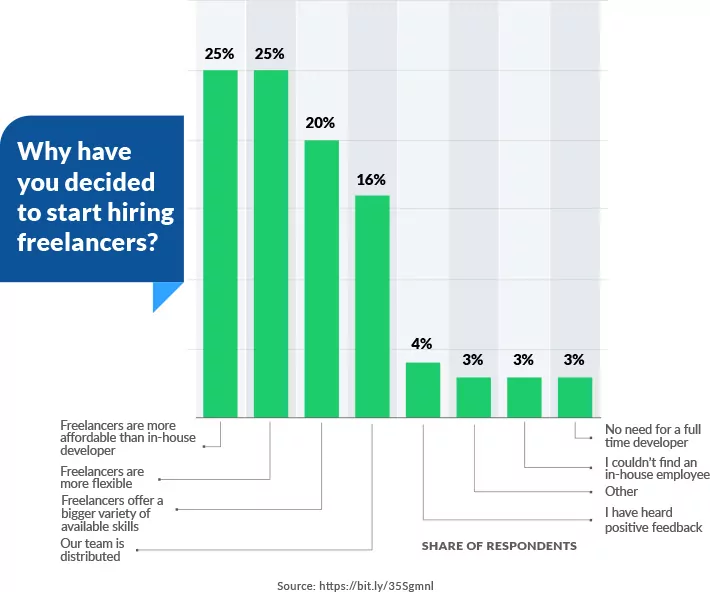
Running a successful business means maximizing efficiency across a range of complex procedures. Sometimes, that involves outsourcing and plenty of it. According to the latest data, the Business Process Outsourcing Market was a USD 187.91 billion industry in 2018 and is projected to grow to an astounding USD 314.81 billion by 2025.
There are some principal activities that occupy business owners from large to small. The activities can be broken down into three categories: core business, critical activities, and non-core activities.
“The real power of outsourcing going forward is going to be that it increases an organization’s core capacity for change and growth.”
- Michael Corbett, Chairman, International Association of Outsourcing Professionals (IAOP)
Categorizing business activities is essential to ensuring that resources, both capital, and human, are appropriately dedicated to achieving maximum profit and operational effectiveness. It's helpful to define these activities as beginning the process of classification.
Examples of BPO services:
As the trend towards BPO continues to develop, almost every business outsources some aspect of their business process. The BPO industry has been responsible for providing cost-effective services to many businesses. The range of business domains to which the BPO industry can be of service includes:

Core Activities
Core activities include everything that leads to the achievement of the business goal and contributes to gaining strategic advantage. These activities are must-do. A business owner should be allocating a significant percentage of resources to these activities.
When the core activities are identified that are not currently being carried out and that will lead to the stated goals of the business, it is essential to investigate how organizational capacity can grow to accommodate those newly identified activities. Core activities are the key, defining activities of an organization. If they are given to an external party, the result would be a new competitor or dissolution.

Critical Activities
Critical activities but non-core activities, meanwhile, must be performed at a high level of competency, but they do not constitute the core business goal. Logistics, for example, is an oft-cited example of critical but non-core activities. Failure to harness the potential of these businesses to differentiate one's business from the competitor can lead to a massive loss of market share.
Consider, the example of Coca Cola’s distribution network. It is not the core business goal of the company, and yet having mastered the art of effective and efficient global distribution, they achieve deeper market penetration than their competitors.

Non-core Activities
These are not contributing to the business goal. Also, they are not supporting the relationship between your product or service and the consumer. They are activities that should undoubtedly be divested or outsourced.
It can be challenging to identify these activities because, of course, there are so many activities that go into successfully growing a business; however, rededicating your resources away from non-core activities frees up time, money, and talent to be devoted to core operations.
The following question can identify non-core activities: If we didn't conduct this activity for a week, would the company continue to exist and produce? If the answer is yes, then the action needs to be intelligently divested.
As companies redouble their efforts on core business operations and hone in on developing a competitive advantage, non-core functions are increasingly outsourced. Companies struggle to manage non-core, non-strategic processes, such as distribution and inventory management, accounting and HR, credit card processing, and product testing.
Although these processes are vital to the day-to-day operation of many businesses, they are increasingly seen as overhead functions that are not essential to the definition of the core business and, as such, are not contributing to market share or profit.
Which Activities are Outsourceable?
The critical question that a company must ask is, “what functions are outsourceable and what is the business benefit tare realized by doing so." It is essential to a plan of activities that the company will not engage in. This action demonstrates the efficient use of time and resources. Business leaders often overlook the importance of choosing where not to focus attention and effort.
As companies are increasingly deciding which functions and processes are essential to their core business and which is delegated, a range of alternative options is emerging to take on non-core activities. Digital penetration and mobile productivity applications have made it so that outsourcing these activities to specialists is both efficient and convenient.
The total number of processes that companies consider core is shrinking, while the proportion of non-core yet critical processes will continue to expand.
“Do what you do best, and outsource the rest.” Peter Drucker – Management consultant, educator, and author.
Enterprises prepared to meet the opportunity to allocate resources to their core business by delegating non-core activities will see gains in customer service, efficiency, and costs. These processes should transition to an outsourcer without disruption of duty or compromise quality or confidentiality.

Business Process Outsourcing ("BPO") is one of the several areas in which a company can outsource their activities. It is a broad umbrella term designed to encompass non-core business activities to an external service provider.
These activities include legal services, payroll, IT, logistics, and more. Both large multinationals and SMB’s outsource these kinds of activities to service providers who handle everything from the back office to customer-facing processes.
BPO services can cover administration and business operations and can encompass hardware, software, and elements of staffing as well. BPO can change the operating model of a company by moving non-core activities away from in-house staff. In this way, economies of scale are realized, access is gained to more sophisticated technology, and focus redirected to essential, core, and revenue-generating business activities.
What is BPO as a concept?
A subset of the catch-all term outsourcing, Business Process Outsourcing (BPO), involves contracting a third-party to handle non-essential business activities. When BPO companies recruited internationally, the contract referred to offshore outsourcing. Contracting BPO companies within the same country where the client is located, the contact is seen as onshore outsourcing. Nearshore outsourcing relates to the situation where BPO is conducted within the same region but in a different country.
BPO services have been classified as either front-end or back-end. The industry also organizes them. For example, the BPO can look different for a retail business versus a healthcare-oriented business. BPO services run the gamut from customer service to HR, accounting, and more. Some of the most common processes that companies choose to outsource are information-technology based.
Industry-wide, BPO offerings consist of two primary categories:
- Horizontal offerings whereby the services leveraged across industries - for example, accounting. Horizontal BPO services typically provide traditional back-office services.
- Vertical-specific offerings require specific industry knowledge. In the latter case, the provider needs to be highly specialized. These industry-specific BPOs are proliferating and handle such specialized processes as claims and mortgage processing.
Examples of BPO services:
As the trend towards BPO continues to develop, almost every business outsources some aspect of their business process. The BPO industry has been responsible for providing cost-effective services to many businesses. The range of business domains to which the BPO industry can be of service includes:
- IT/ITES: Software development, IT staffing, Helpdesk services, Infrastructure Management Services
- Financial Services: Bookkeeping, Payroll Processing, Financial Analysis Services
- Healthcare Services: Teleradiology Services, Medical Transcription Services, Healthcare Claims Adjudication
- Call Center Services: Inbound and outbound call centers, telemarketing, email support, technical support services, etc.
- E-commerce Websites: Online ordering, Refund Processing
- Travel Industry: Bookings, Cancellations
- Retail Services: Ordering, Status checking
- Educational Institutions: Course information, Fees Processing
- Manufacturing: Component information, Ordering, Help services
- Telecom sector: Service information, Complaint Processing

